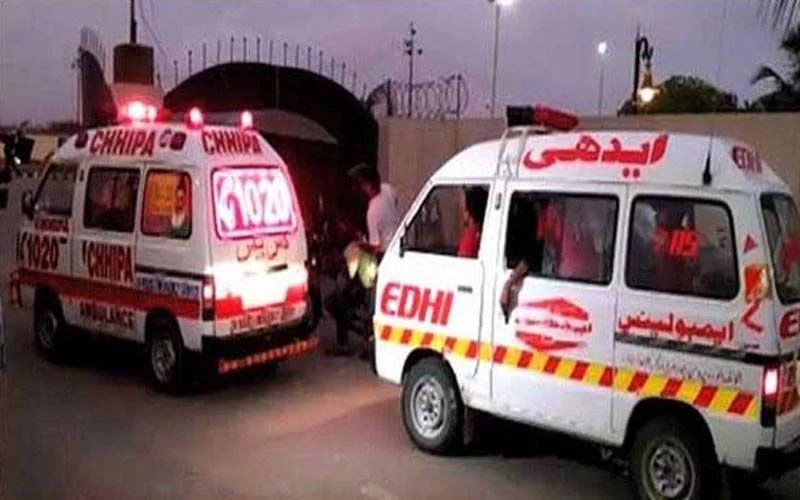In a deeply disturbing and tragic incident, the bodies of nine abducted Punjabi laborers were recovered in the Nushki district of Balochistan, just two days after they were reportedly kidnapped by unidentified gunmen. The victims, who had been traveling from Quetta to the border town of Taftan, were forcibly taken from a passenger bus by armed men who checked their identity cards before selecting specific passengers to abduct. This brutal act has shocked the nation and raised serious concerns about the deteriorating security situation in parts of Balochistan.
The Incident
According to local authorities, the armed assailants intercepted the passenger vehicle on National Highway N-40 near Sultan Charhai, a remote area within the Nushki district. The bus was en route to Taftan, a town near the Iran-Pakistan border, which is frequently used by laborers and pilgrims traveling across the province. Eyewitness reports suggest that the attackers stopped the vehicle and began inspecting the passengers’ identification documents. Upon identifying Punjabi laborers, they forcibly removed them from the vehicle and disappeared into the nearby hills.
Following the kidnapping, security forces launched an immediate search operation in the surrounding areas. After two days of extensive search, the bodies of the kidnapped men were found dumped near a dry riverbed under a bridge. All the victims had suffered gunshot wounds. Initial forensic analysis confirmed they were executed at close range, indicating a deliberate and targeted act of violence.
The Victims
The deceased were identified as residents of various districts in Punjab, including Gujranwala, Mandi Bahauddin, and Wazirabad. Most were daily-wage laborers traveling in search of employment opportunities in the border regions. Their deaths have left their families devastated and communities in mourning.
One of the victims, a father of three, had reportedly taken the perilous journey with hopes of earning enough to support his family back home. Another had recently returned from the Middle East and was trying to find work within Pakistan. These were ordinary men with dreams, seeking livelihood, caught in the crossfire of violence they had no part in.
Government and Public Response
The incident sparked widespread outrage across the country. Balochistan Chief Minister Sarfraz Bugti condemned the killings in the strongest possible terms, declaring that the perpetrators of this heinous act would be brought to justice. “Terrorists have no religion, no ethnicity, and no humanity. We will not allow them to destroy our unity,” Bugti said in a statement issued shortly after the bodies were found.
Prime Minister Shehbaz Sharif also expressed his grief and anger over the incident, assuring the victims’ families that the state stood with them. “We will ensure those responsible for this despicable crime are punished with the full force of the law,” he tweeted.
Law enforcement agencies, including the Counter-Terrorism Department (CTD) and Frontier Corps (FC), have intensified operations in the area. Four suspects have reportedly been detained in connection with the killings, and further arrests are expected. Advanced surveillance, including geo-fencing and digital tracking, is being used to trace the network behind the crime.
Ethnic Targeting and Insecurity in Balochistan
This tragic event once again highlights the ethnic tensions and security challenges that have plagued Balochistan for decades. The province has long witnessed sporadic violence, including attacks on infrastructure, security forces, and laborers — particularly those from Punjab and other provinces. Militants and separatist elements have previously claimed responsibility for similar incidents, often citing grievances against perceived economic exploitation and lack of autonomy.
The deliberate targeting of Punjabis is a deeply troubling trend that threatens national unity and the sense of shared identity among Pakistanis. Many analysts believe such attacks are designed to deepen ethnic divisions and fuel distrust among provinces. While the perpetrators’ identities and motives remain officially undisclosed, the pattern is disturbingly familiar.
A Call for National Solidarity
The Nushki tragedy should serve as a wake-up call for both federal and provincial governments. Beyond law enforcement, there is a need for a comprehensive approach to address the root causes of militancy in the region — including poverty, political alienation, and lack of development. Without addressing these issues, military and police responses may treat the symptoms but not the disease.
Furthermore, civil society and media must play a role in promoting inter-provincial harmony and countering the toxic narratives that extremists rely upon. The lives lost in Nushki were not just numbers — they were sons, fathers, and brothers who sought a better future.
As Pakistan grapples with growing economic and political challenges, unity among its diverse communities has never been more essential. The memory of the innocent lives lost in this attack should fuel a renewed national commitment to justice, security, and solidarity.
Reference: نوشکی سے 2 دن قبل اغوا ہونے والے 4 پنجابیوں کی لاشیں برآمد





